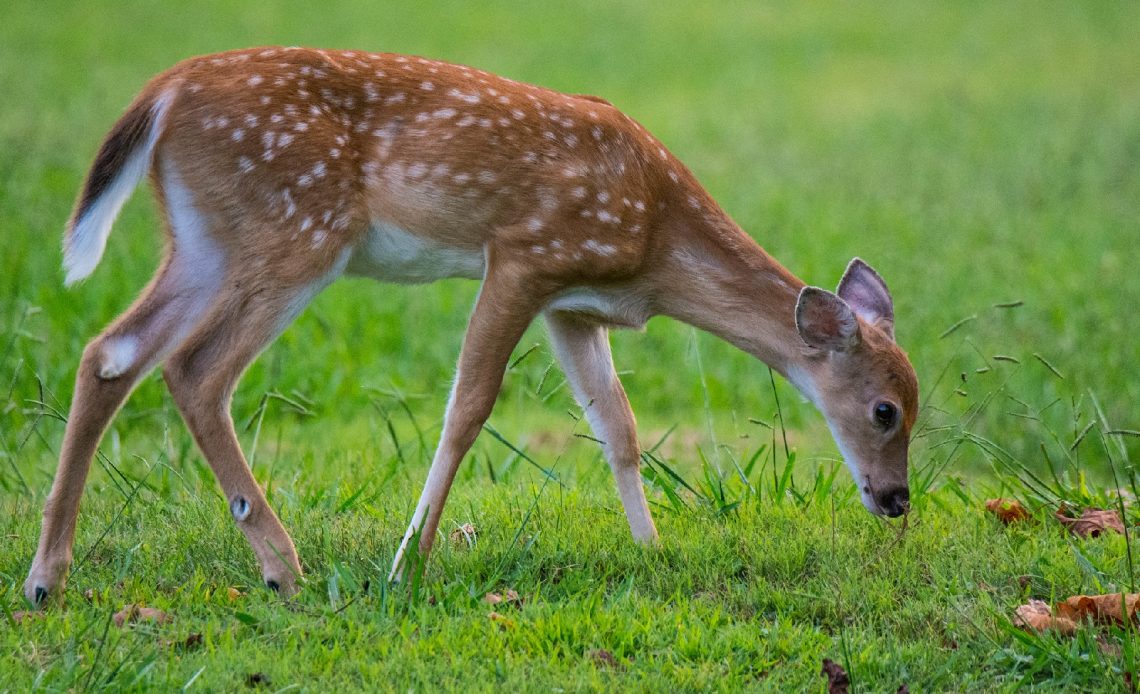

We’re here to help! Wild Yards is a completely free website that is 100% dedicated to helping you create a wildlife-friendly, sustainable yard. Read more
WildYards is reader-supported. When you buy a product through a link on our site, we may earn a comission. Every product is independently selected by our (obsessive) editors and our reviews are unbiased and objective. Read more about our mission or our privacy policy.
Mushrooms pop up all around us – for the most part, many of us enjoy eating common varieties or using the safer species for medicinal purposes. When it comes to the animal kingdom, some beasts can be a little fussy about the fungi they find. Do deer eat mushrooms, for example?
Deer love to eat mushrooms! They consume around 50 different species, including those that humans may find toxic. These opportunistic feeders have evolved to feast on any fungi patches they can find.
Why do deer like mushrooms?
Mushrooms are highly beneficial to the deer’s general diet and digestive health and are also a good source of water during periods of drought.
Water content
Although we may not consider them to be the juiciest of foods, when fresh, around 90% of a mushroom’s weight is pure water. It’s thought that the high water content makes them particularly easy for the deer to digest. Deer will typically find safe water sources to drink from while roaming in the wild, but mushrooms provide an extra quick hit of hydration if they are in dire need.
Eaten sparingly, mushrooms don’t provide a substantial or even sufficient amount of water for a deer to live on, meaning if you’re attracting deer to your yard, be sure to leave a water source available – not just a patch of mushrooms.
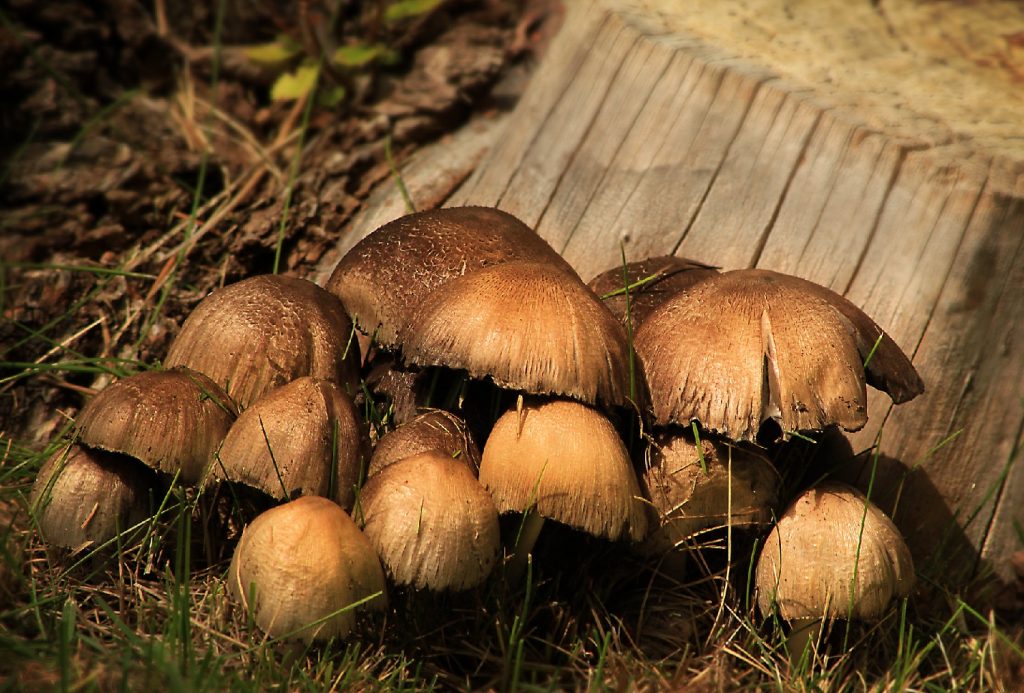
Overall nutrition
When it comes to nutritional value, mushrooms are highly beneficial sources of protein for deer. All species of deer are herbivores, which means that it can be difficult for them to come across protein in their everyday foraging. Mushroom protein levels, on the whole, are much denser than they may expect from other wild food sources. This may vary from mushroom to mushroom, of course.
Mushrooms are also packed with vitamin B complexes, vitamin C, D, thiamine, riboflavin, niacin, and pantothenic. They are also rich in minerals such as phosphorus, iron, potassium, niacin, and selenium. Phosphorus, in particular, is highly lacking in many deer diets, making mushrooms an instant top-up for roving animals.
Mushrooms are also full of calcium, zinc, copper, choline, and magnesium – many of which are easily found in the plants and greenery deer will find easily elsewhere. However, mushrooms present a highly concentrated form of such nutrition, one that is also very easy for the deer to digest. They’re also high in carbohydrates, which are highly beneficial for keeping energy levels high.
Taste and texture
Deer tend to follow similar trends in taste and texture preference cross-species, though some individual animals may diverge from the pack. That said, mushrooms cater to most deer’s needs in terms of blandness and smoothness in texture. Many deer have evolved to actively avoid eating plants and growths that are strongly flavored, fragranced, or even covered in fuzz or thorns.
This is largely a result of the deer’s complex digestive system, dominated by a rumen. Unless starving, deer will avoid plants such as ferns, lavender, and coleus, and particularly strong-tasting types of mushrooms. Some of the most common varieties they enjoy, such as morels and shiitake, are fairly unassuming in terms of shape, texture, and taste.
Interestingly, deer have evolved to avoid potentially poisonous mushrooms in this way – more on this a little further down.
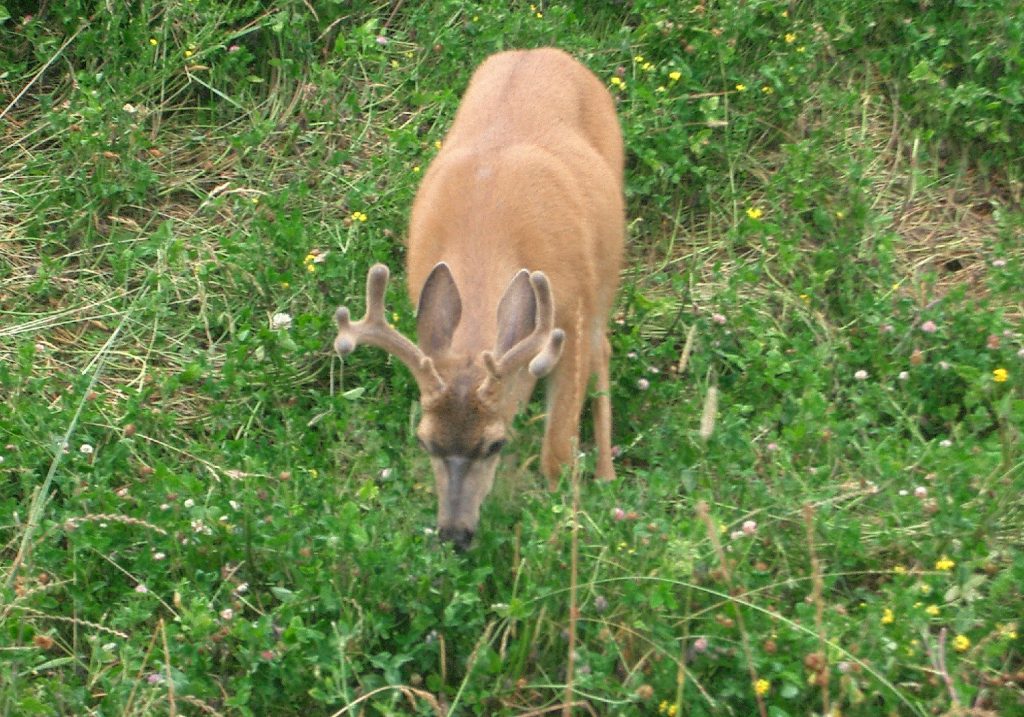
Availability
Mushrooms and various species of fungi can grow almost anywhere that’s moist, but they are commonly found at the bases of trees and in stumps – abundantly, in forest or wooded areas. Deer prefer to forage around these areas as trees, and sometimes tall grass, provide them with perfect coverage for them to forage for their foods safely.
These quick snacks will grow almost anywhere that organic matter is dying or decaying. While deer may be selective about some tastes and textures, they are opportunistic enough to eat fungi from moldy bark and feces. Typically, deer preferences will vary depending on food availability, and mushroom growth will vary depending on heat and moisture.
Despite their propensity to thrive in humid conditions, many mushroom species can be very hardy – they can be genuine life-savers for deer in the colder months when food is scarce. Deer may choose to have their fill of mushrooms during fall (when many species thrive the most thanks to rainy conditions), conserving energy for the winter ahead.
What kinds of mushrooms do deer eat most?
The types of mushrooms preferred by any given deer will depend on their local area and availability, though most will eat common species such as waxy caps and boletes. Interestingly, deer are known to eat many fungi within their ‘top 50’ that can prove to be toxic to humans.
Morels
Morels are commonly eaten by elk, moose and several types of deer – these tend to be some of the most nutritionally rich, making them highly foraged during the start of sunnier weather.
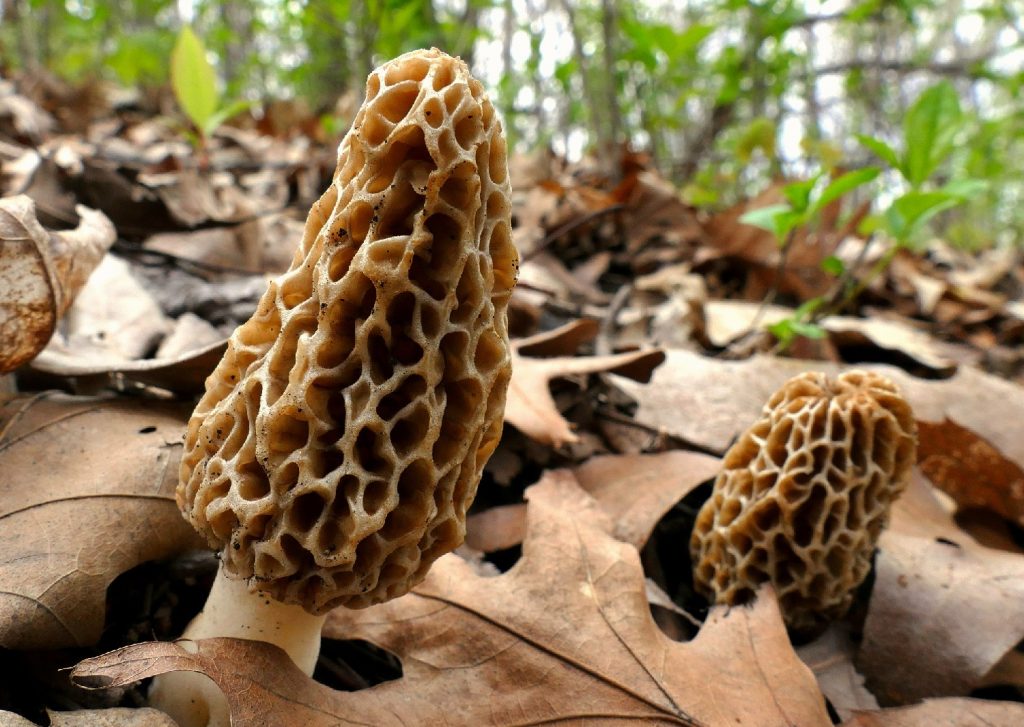
Chanterelles
Chanterelles are highly popular with black and white-tailed deer, though as always, an opportunistic creature will rarely turn them down. These fungi are particularly popular as they are high in polysaccharides, which can help deer to store energy for longer periods.
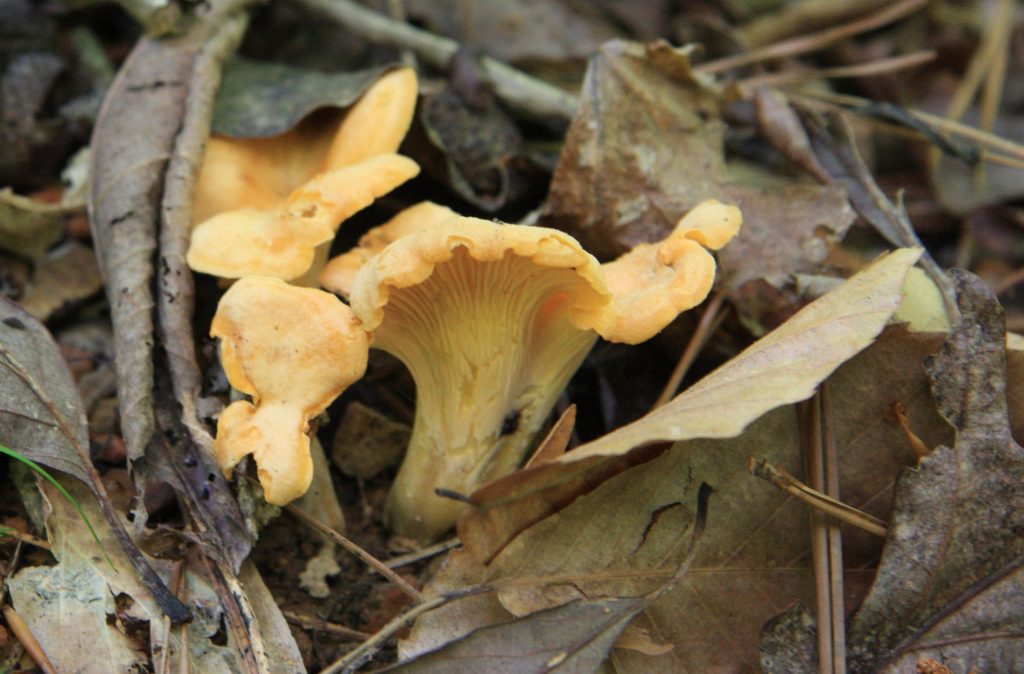
Boletes
Most deer to the north of the equator will enjoy eating boletes. The ‘King’ bolete, as it’s known, is a fantastic metabolism-booster as a result of its vitamin D content.
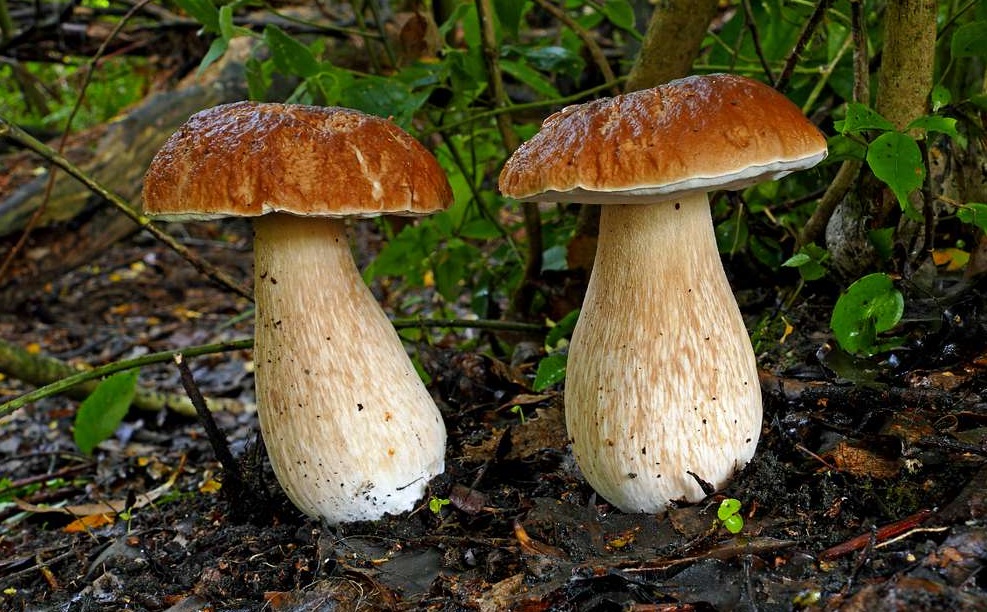
Turkey Tails
Turkey tail mushrooms aren’t usually eaten by humans – there’s some dispute over their toxicity – but deer will happily feast on these growths. They’re normally found around tree bases, and are exceptionally smooth – and won’t set off the deer’s inner ‘texture alarm’.
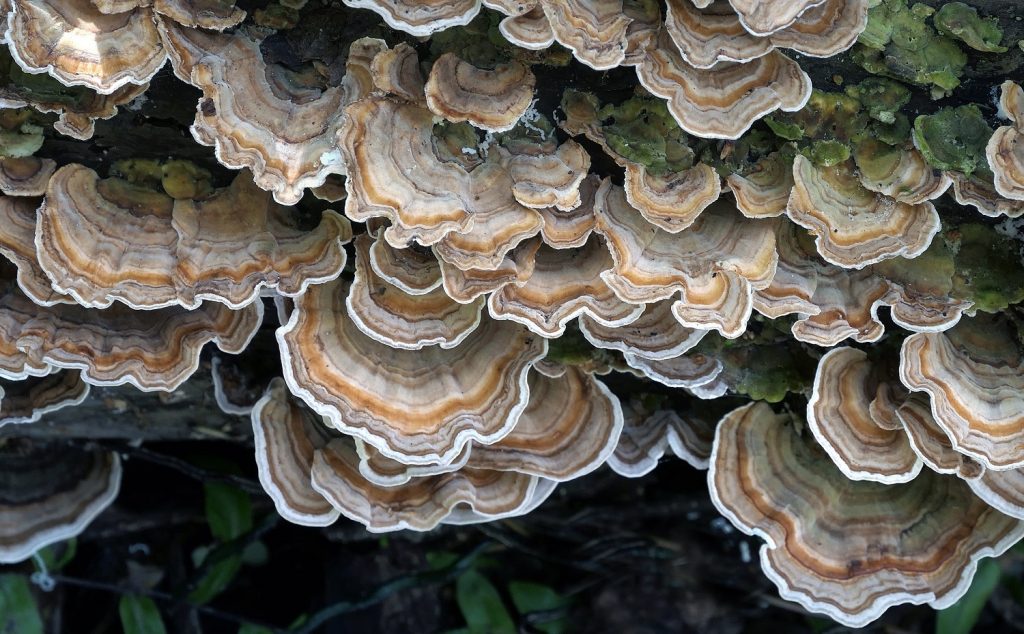
Oysters
Oyster mushrooms are big favorites among roe deer and red deer, and much like boletes and chanterelles, are highly nutritious. Specifically, these common fungi help to boost immune system function and may even reduce inflammation.
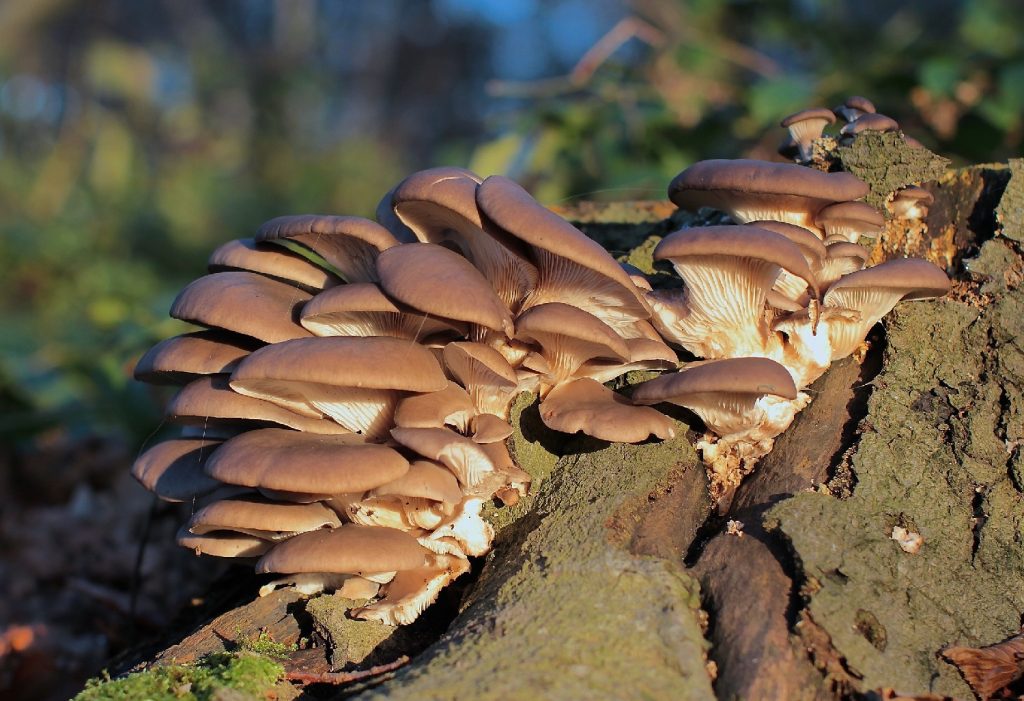
Shiitakes
Shiitake mushrooms are hugely popular with a variety of wildlife (as well as humans), and much like boletes, they’re brilliant at boosting immunity. Typically, it’s sika and some water deer species (typically found out east) who feast on these growths.
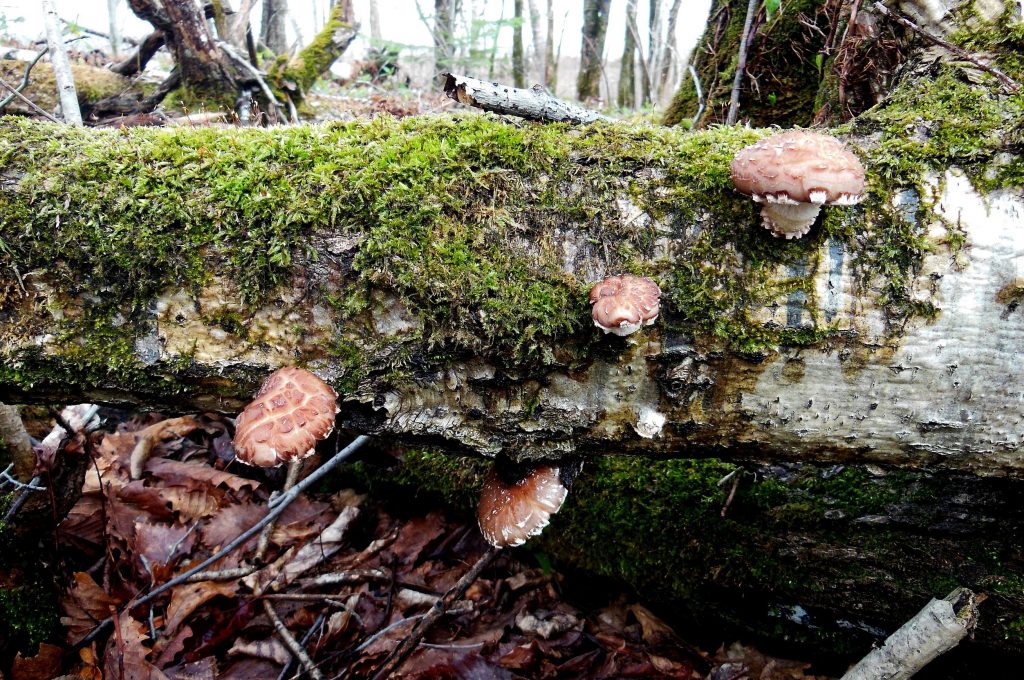
Puffballs
Puffball mushrooms cover various fungi and are perhaps best known for their round, dome-like shapes. Most deer will happily eat puffballs, though they can prove toxic for humans if mature enough.
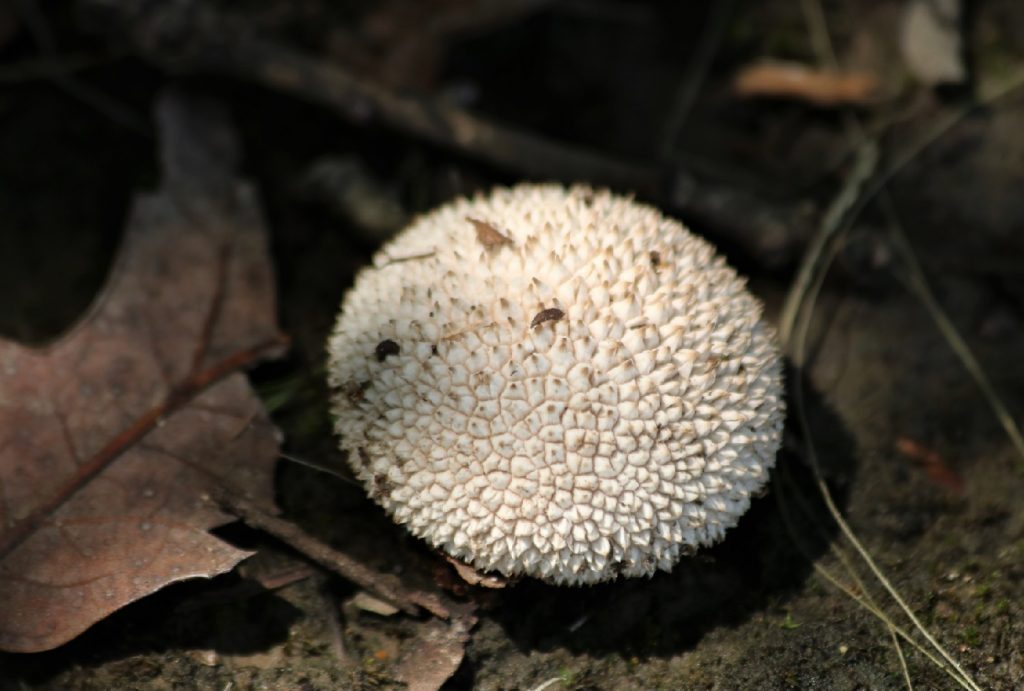
Honey Mushrooms
Honey mushrooms are, again, highly nutritious for deer, and they tend to be popular for their hardiness during fall and winter. Most deer will typically need to dig under trees for these specimens, particularly if food is scarce during colder months.
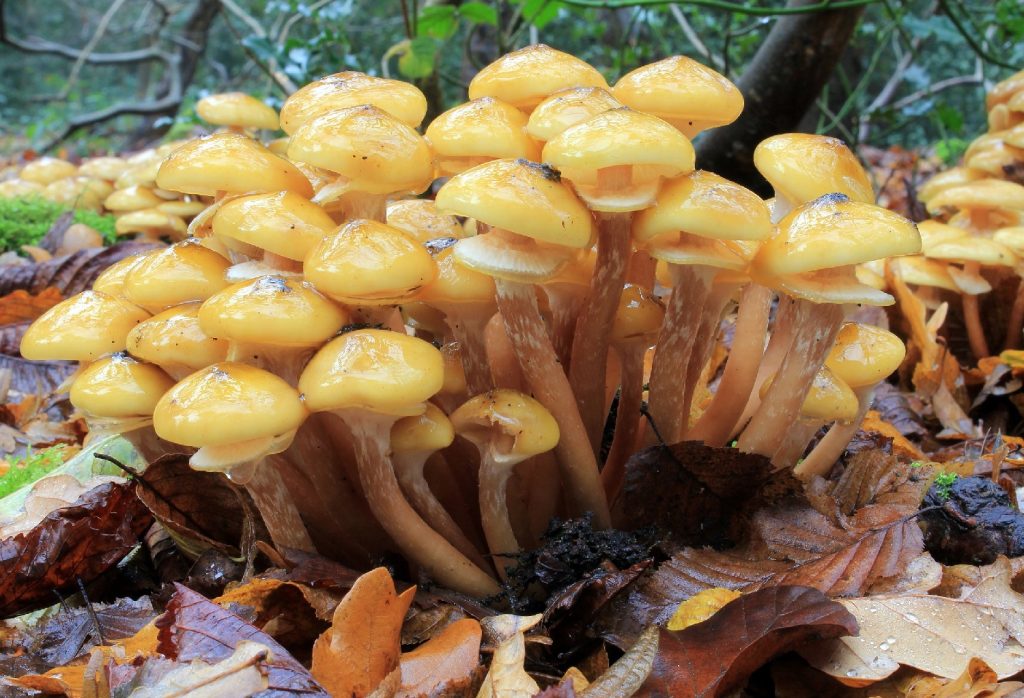
Are any mushrooms poisonous for deer?
Deer may be susceptible to the poison in some mushroom varieties, though they have adapted to safely digest many toxins that people, for example, cannot. Their gut microbiomes can help to break down the food they find in the wild that domesticated creatures – or human beings – wouldn’t be able to digest.
It is also believed that the deer’s general diet helps them digest certain foods. Since deer eat various plants and wild specimens on any given day, their bodies have adapted to expect natural toxins to some extent. It’s thought that the nutritional balance of food they typically eat – including the immunity-boosting benefits of some mushroom species – can offset potential poisonings.
All things considered, this doesn’t mean deer are completely resistant to all types of mushrooms when ingested. Fascinatingly, many deer have adapted to simply avoid eating mushrooms they innately know to be highly poisonous. This is behavior that they may learn from mature deer during childhood, too.
When are deer likely to eat mushrooms?
Deer will eat mushrooms whenever they come across them – although some species will thrive only in relative humidity. Some mushrooms, such as oysters, honey mushrooms, and blewits, will grow during winter – but they are largely exceptions to the rule.
Typically, fungi prefer at least 50% humidity to thrive, with 80% being a good marker for healthy growth – which explains why we largely find them in covered or woodland areas, where water absorbs into the soil.
Deer will normally find abundant mushrooms to eat around the earlier months of spring, though many species will grow late into fall. Most mushrooms prefer 60˚ F as an ambient temperature for growth, though depending on species and adaptability, many will thrive in warmer (and colder) climates.
In the summer months, deer have a much more varied diet thanks to the wider availability of plants, flowers, and vegetables – and may not need to rely on mushrooms as much for sustenance. Many will fill up on mushrooms before the winter comes to stock up on nutrients ahead of the freeze. Again, some species contain energy-conserving nutrition, perfect for helping deer withstand periods of extended hunger.
Should I grow mushrooms in my garden for deer?
There’s nothing wrong with growing common fungi in your yard for deer to eat, but they’re unlikely to find them attractive – simply because they are so widespread. Instead, deer are more likely to be attracted to colorful treats such as rhododendrons, azaleas, and hydrangeas, all of which many gardeners prefer to protect!
It may be worth leaving a specific deer feeding patch in your yard with raw mushrooms (consider a selection of those listed above, if you can forage them safely). Make sure it’s legal for you to feed deer in your state before you roll out the red carpet!
Whenever deer can come across mushrooms, they will eat them. They’re highly nutritious, and deer will even digest some of the more toxic varieties that prove fatal for other species. Deer rely on fungi as quick, easy energy-boosters that also help bolster immunity and – in some cases – relieve inflammation. Given that mushrooms propagate wildly in warmer, damper conditions, these food sources are also extremely common in their preferred woodland habitats.
